
What are Blockchain Games?
What makes blockchain games different from regular games boils down to two things – ownership and control. To understand this, take a look at traditional video games.
Traditional games are owned by gaming companies with total control over the game and its parts. In-game assets in these games are owned by the company and can be taken away by them at any given time. In a nutshell, everything about the games is controlled by its developers. Even assets that players may have paid can become worthless if the game is taken offline. They can be used within the game for as long as the company decides to keep them there.
On the other hand, blockchain games are owned by companies, but because they are deployed onto decentralized networks like Ethereum. So while a company might own a game, they do not have total control.
Using blockchain technology as their digital ledger, these games can run entire economic ecosystems and manage player transactions, trades and purchases without a central system. They use non-fungible tokens and cryptocurrencies for in-game purchases and Since these games allow players to earn while playing, players can potentially make quite a bit of real money, depending on the game.
What’s different? Players have control over their accounts and the game assets they acquire. These assets can be bought and traded on decentralized marketplaces.
With blockchain games, players get the following:
Blockchain, the decentralized and distributed digital record system, was created to facilitate and secure cryptocurrency transactions. Although it first appeared in the 1980s, the first fully developed blockchain was launched in 2009 when Satoshi Nakamoto rolled out the Bitcoin Network. Since the technology is highly reliable, uncheatable, and secure, it’s now being used across many industries. For example:
- Capital Markets: Blockchain solutions offer capital markets faster clearing, consolidated audit trails, and general operations improvement. Axoni, a popular fintech startup, is already working on a blockchain-based platform for managing equity transactions.
- Trade Finance: Traditional trade finance sometimes interrupts business operations significantly due to its slow nature. International financing can be complex as it involves a large number of variables. Blockchain technology streamlines cross-border trade finance enabling enterprises to transact faster and affordably despite geographical differences.
- Regulatory Sector: The secure nature of the network brings high levels of integrity in record keeping. On top of this, no one can change records once secured. Blockchain-based accounting systems may not need external auditors as they are already trustless.
- Electoral Process: The technology promises to offer a reliable and 100% transparent electoral process by enhancing security. Hackers would have no place in such a voting system since all data would be verified unanimously.
These are but a few industries that benefit from blockchain networks. The insurance, real estate, health, media, and energy sector are also among the beneficiaries. The gaming industry is one of the most prosperous areas where technology made a significant impact. Blockchain-based games first emerged around 2017 and disrupted the traditional video game industry that was already among the most successful globally. They offer similar rules and even game-plays as their conventional counterparts but are safer, faster, and more engaging. The use of non-fungible tokens (NFTs) introduced a new gaming experience that has seen players shift from traditional gaming in large numbers.
By the end of 2021, it was estimated that the industry had grown by over 22,000%. This was mainly attributed to the rise of the metaverse and play-to-earn games. Blockchain-based VR and AR games allow players to connect, socialize and play in multidimensional spaces with high flexibility. These games offer high levels of immersion and improve the player experience through features like in-house tokens and NFT asset ownership through smart contracts. The technology has also triggered the rise of decentralized autonomous gaming organizations, aiming to bring back power to the players by eliminating monopolies and central organized management. With DAOs, players can vote for better policies and features that will improve their experience.
Play-to-Earn Games
If you’ve been following the gaming industry closely, you’ll know that a new gaming system is making all the buzz right now. People are talking about games that pay players to play. These games are called play-to-earn, allowing players to generate income while doing something they enjoy.
What are play-to-earn games?
Play-to-earn games are blockchain games that reward players for their time spent playing. These rewards are usually in any of the two blockchain assets: cryptocurrencies or NFTs especially in NFT gaming. Some blockchain games even offer both to players.
How does this work? Do players just have to play and get paid?
In traditional games, in-game assets are given to players when they reach a milestone which could be anything from winning a battle to advancing to a new level. The same runs true for play-to-earn games. Players are rewarded for completing game activities with tokens or NFTs.
Non-fungible tokens (NFTs) are digital assets that represent digital or physical objects such as music, image, gifs, game assets, deeds to houses and cars, etc. These digital assets are uniquely created with special cryptographic codes that set them apart from others.
Cryptocurrencies are digital currencies protected by cryptography and maintained by a decentralized system.
Remember that these game assets belong to the players entirely, meaning they can sell or trade them for regular fiat currency. Some players have earned as much as 1 thousand dollars through playing these blockchain games.
But there’s a catch.
Before most players can start earning from crypto play and earn games, they have to pay to play first. Some games require new players to own game assets before they can start playing, which could cost a fair bit of money. Don’t give up yet; some programs help newbies circumvent the system and get these avatars for less while also playing and earning.
Some play-to-earn games are free to play, so you might still get the chance to have fun with this new gaming ecosystem.
How To Get Started with Blockchain Games?
1. Meet the Eligibility
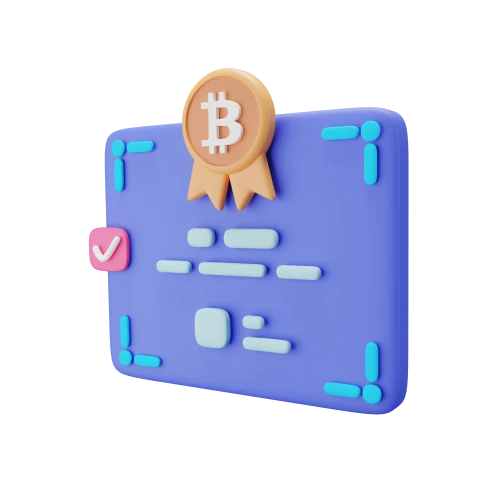
Before starting a game, you must check how you can become eligible to play it. For instance, if you want to play Axie Infinity, you must purchase at least three ‘Axies’. These Axies will allow you to play the game. Today, many games have an Ethereum-based blockchain ecosystem. To play these games, you have to purchase Ether. You can purchase the currency on a crypto exchange such as Binance or eToro.
2. Create a Cryptocurrency Wallet
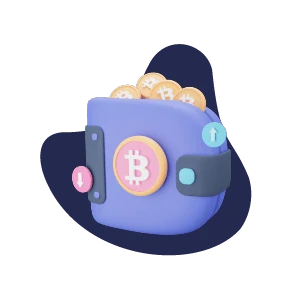
You need to register with a cryptocurrency wallet to make transactions. These wallets connect with the game and allow you to convert and withdraw the native cryptocurrency of the game into other currencies. For instance, you can connect MetaMask with any GameFi game that uses an Ethereum-based blockchain.
3. Add Currency in Your Wallet
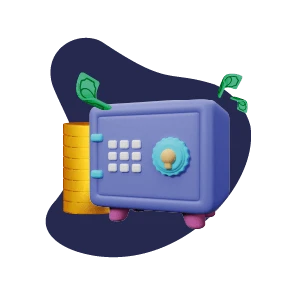
Before playing crypto games, you should add some cryptocurrency to your chosen cryptocurrency wallet. Only a few games allow you to get started without a pre-funded crypto wallet. Once you create a cryptocurrency wallet, you have to add some native currency to the game to purchase the items.
4. Buy Starter Items
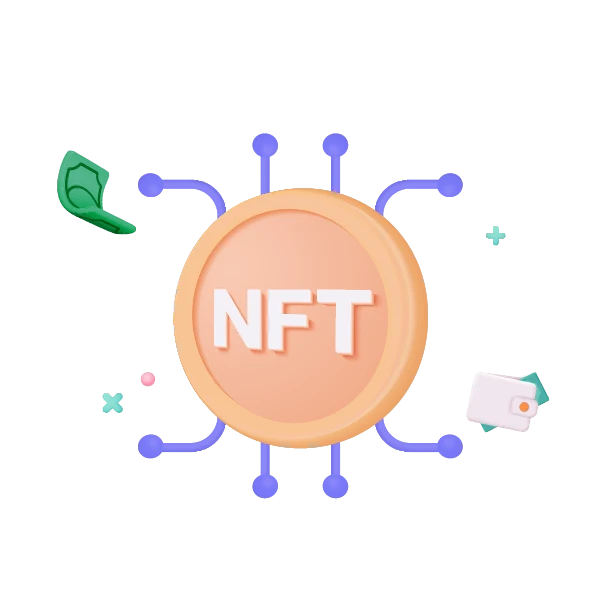
Many games are free to download, but you have to purchase the characters or a starter kit. Before Also, you can buy native crypto tokens, upgrade your items, and decks of cards.
Crypto Games
In three words? For the money.
Gamers have spent a substantial time playing games and having fun. Before crypto games that paid gamers to play and have fun, gamers did it for free. But for the gaming corporations that own those games, it wasn’t exactly free. More logged-in hours by players meant more ad views, more chances of players purchasing game assets, and more conversations around this game. All of these ended in more money for these companies.
The tide has changed with the emergence of crypto games that pay gamers to play. Now, gamers realize that they can have fun and make money simultaneously. Now, more hours logged in would pay off in more than a sensory overload and earning bragging rights over fellow gamers. Instead, they would pay in actual money.
So, why try out crypto games?
Try them out because they drive a fairer bargain and can compensate you for the time spent playing. Start playing crypto games, be more than just another gamer, and be a part-owner and decision-maker.
Blockchain games have opened a whole new world for gamers, and if you love playing games, you should walk right through and explore the novelty of play-to-earn blockchain games.
Here are some additional benefits of playing crypto games:
-
Joining communities
Like the traditional gaming world, crypto gaming has a huge and passionate following. Many blockchain games have an enormous following that communicates in-game and on Twitter and Discord.
-
Play and Earn & NFT Ownership
Of course, the main reason is that play-to-earn offers you real-world currency or NFTs in return for your investment of time. It’s the reason that blockchain games aren’t just about gaming, but creating an economy within that world.
-
Instant Transaction
Unlike fiat transactions, cryptocurrency payments are quick. It might take minutes and even seconds to send and receive money. That is why many gambling sites include cryptocurrency in their payment options.
-
Low Transaction Fees
Crypto games use cryptocurrencies for transactions. Unlike fiat currencies, these currencies are cost-effective due to low transaction fees. Also, many cryptocurrency transactions won’t charge a commission. All you need to pay is low transaction fees.
On the other hand, payment channels such as credit cards and e-wallets require high fees per transaction. Since crypto games use cryptocurrency for transactions, you can save a significant fee on each transaction.
-
Secure Transactions
Since cryptocurrency transactions use blockchain technology, it is one of the safest transaction options. You can send and receive digital assets without worrying about thieves and hackers. Blockchain technology prevents the hacking and stealing of keys. Whenever you make a transaction it creates an entry in the entire blockchain. However, hackers can’t create duplicate keys for a transaction.
Enhanced security
Virtual currencies are inherently safer than fiat currencies. All transactions are recorded on a distributed ledger system and cannot be changed or manipulated. Any corrupt file introduced into the network will be invalidated automatically. Finally, the nature of cryptography technology is to encrypt all data, creating a barrier that prevents outsiders such as hackers and other unscrupulous individuals from breaching security protocols.
Smoother transfer of assets
The decentralized nature of digital coins ensures a seamless transfer of value by eliminating the need to trust third parties. A trustless system of distributed miners and validators secures and completes all payments. Unlike traditional finance, most virtual currency transactions are completed in a matter of minutes.
Improved user experience
In many ways, digital currency gaming improves the overall user experience. It introduces free-to-play games in addition to security and seamless transactions. Users can play for free, and most games reward players in cryptocurrency for completing missions and quests. The play-to-earn model makes gaming more enjoyable and appealing.
Trading resources
Axie Infinity, Decentraland, and the Sandbox are examples of games that allow players to create their own in-game assets and experiences. You can create unique weapons, avatars, in-game attire, and even tokens, which you can then sell for the platform’s native coin or swap with other players to transfer value.
Better earning opportunities
Cryptocurrency games provide excellent earning opportunities to players through features such as gaming rewards and in-house trading assets. In some parts of the world, people are debating whether play-to-earn games will become a form of employment in the future. According to the news agency Rest of the World, 31-year-old RK Secretario earns around £18,000 playing Axie Infinity.
Limitations of Playing Cryptocurrency Games
Complexity
Trying to invest in something you don’t understand can be risky. Although digital coins have existed for a while, they are still a new concept for many. That means not everyone can just sign up and start playing digital coin games without first having to go through a learning curve.
Regulatory Hustles
Globally, the digital coin sector is highly unregulated. The lack of a proper legal framework impedes the full development of cryptocurrency games. In the past, sudden changes in regulations in places like China have caused major setbacks in the industry. Due to the uncertain future, investors and developers may not invest their full resources in the industry.
Competition
Traditional video games, such as Xbox, continue to pose significant competition. In 2022, PUBG Mobile, a traditional mobile-based game, had over 1 billion subscribers. This is a significant number when compared to the leading cryptocurrency game, Axie Infinity, which only has about 400,000 users per month. More users adopting digital coin games will motivate developers to continue improving their software.
Crypto Games
When it comes to crypto games, most people have a preconceived idea of what crypto games are. You wouldn’t be wrong if you think of Axie Infinity and Splinterlands when you hear crypt games. But then, you wouldn’t be entirely right either. There are four main types of crypto games.
NFT Games
NFT games are blockchain games where players are rewarded with non-fungible tokens, which they can sell for fiat currency on any NFT marketplaces like OpenSea and Rarible. Examples of NFT games include SandBox and Decentraland.
Metaverse
The metaverse is an interconnected digital space incorporating features of the real world and science fiction into a new creative virtual world of limitless possibilities. Metaverse games are played in this virtual space, mostly using wearables like VR headsets to get into the virtual world. Unlike traditional 3D video games, these leverage blockchain technology and its components, such as cryptocurrencies and NFTs. Somnium Space is a good example.
Play-to-Earn (P2E)
As the name sounds, P2E refers to all games where players make money to play. How they work is simple. In most cases, players might be required to purchase or mint in-house gaming assets. For example, you may be required to buy land to get started. You may then start participating in battles and earning crypto or NFTs whenever you win. Some P2E games, such as God’s unchained, don’t require an initial investment.
Crypto Games
A crypto game is a blockchain game where the players get rewarded with cryptocurrency tokens when they complete game activities and challenges. These tokens can be exchanged for fiat currency on decentralized exchanges like Metamask. Examples of crypto games include CryptoKitties and Gods Unchained.
Provably Fair Games
Crypto Gambling games are blockchain betting game systems designed with blockchain technology to prevent manipulation and cheating. With this gambling system, all bets are stored and recorded on a public ledger and linked to different nodes in the blockchain. These games are also called provably fair casinos, and they ensure that the casino doesn’t cheat the player because all the records are transparent and verifiable.
Crypto Casino Games
Crypto Casino games are online casinos that allow players to place bets using cryptocurrencies. Players have to wait for hours sometimes to fund their betting accounts through traditional methods like bank transfer and direct deposit. However, players can fund their wallets in minutes with cryptocurrencies. All it takes is approximately 10 minutes, which is the time required for a Bitcoin transaction to go through.
Crypto Games
Now, you’re ready to play. You’ve gotten everything together, from cryptocurrencies to a digital wallet. All that’s left for you is to pick a game to play, and this is where most new newcomers to blockchain gaming get lost.
In January, according to Coindesk, there were 398 active blockchain games. That is an overwhelming amount to choose from without knowing anything about them. It’d be more overwhelming if there weren’t a well-curated list of the best crypto games in 2023.
You can go through this list and pick the best games for yourself.
Galaxy Fight Club
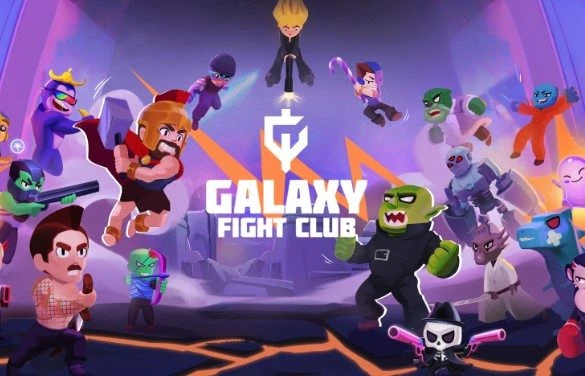
This upcoming cross-IP P2E PvP game intends to bring together multiple NFTs onto a single platform. You can buy any avatar NFTs of your choice from the secondary market and use them to play this game.
Call of the Void
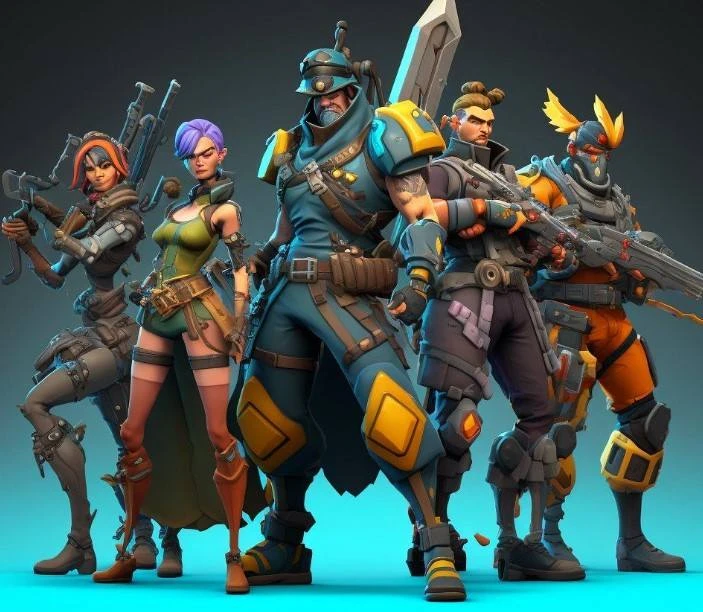
Call of the void is an easy-to-play crypto title that allows you to play with friends despite their location and win different prizes and collectibles. The gameplay revolves around top-down shooting, where one is required to defeat waves of enemies. It was in the presale stage while writing this.
Wonderland

Wonderland is more than just a crypto game. Players can create NFTs of items they own in real life and use them in the Wonderland space. Businesses can also have NFTs of their products to allow clients to sample them in the metaverse before making an actual purchase.
FightOut

This move-to-earn crypto game will launch before May 2023. It’s already set to blow up after raising over $1.5 million in less than 24 hours of its token presale. The gameplay involved working out and completing different exercises to earn the FightOut ($FGHT) token.
Idle Miner
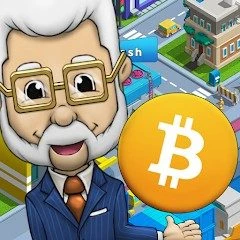
Lastly, we have Idle Miner, a free mobile-based P2E that allows people to earn USDT for playing games. The name is very intentional, as the game aims to help people make good use of their “Idle” time by “mining” cryptocurrencies. The gameplay is what is referred to as mining.
Crypto Games
PC gaming had the most number of users in the early days. Over time, tables have turned, with studies showing that mobile phones account for over 60% of total gaming globally. The trend is the same in the crypto sector. Early software developers focused on PC game plays. With time, they have noticed that most players have an active life and would appreciate being able to play while on the go. Gaming is primarily meant for entertainment.
People hence want to enjoy playing their favorite titles while on holiday or even in the evening while resting. Having to carry a PC in such situations would definitely be inconvenient. No wonder the highest number of digital coin games being released today are 100% mobile-based. Where they are not, players can access them via both PC and mobile devices. Multiplayer game Thetan Arena garnered over 10 million downloads within only three months in 2021. This is just an example of the demand for this model.
Bottom Line
Blockchain technology has refined so many industries, and the gaming industry is one of them. With the influence of Blockchain games, the gaming industry is set to grow exponentially to a projected worth of 260 billion dollars.
Blockchain games have gained popularity and would maintain a positive trajectory based on reliable predictions. Old gamers are excited about the opportunity to be paid to play games, while new gamers on the scene want to pursue professional gaming under this platform.
Blockchain gaming, for all of its great offerings, has not been completely adopted by the gaming industry in general. However, the future is optimistic because blockchain gaming is here to stay, and for players who have gotten used to being rewarded for their time, there’s no going back.
FAQs
Can you earn money from blockchain games?
You can earn money from blockchain play-to-earn games by converting in-game assets, NFTs, and cryptocurrencies to fiat by exchanging them on a marketplace.
Is it free to play Blockchain Games?
It is not always free to play Blockchain games. Some blockchain games are free to play, but others require players to purchase assets before they can start playing.
What Crypto games are play-to-earn?
There are many play-to-earn crypto games. The best five play-to-earn crypto games are Axie Infinity, Gods Unchained, Splinterlands, SandBox, and MOBOX.
What is the best Crypto for Gaming?
The best cryptocurrencies for blockchain gaming are SAND from SandBox, MANA from Decentraland, and AXS from Axie Infinity.
What blockchain Games are on iOS and Android?
Many blockchain games have mobile versions for iOS and Android. Some of the best mobile blockchain games include MOBOX and Axie Infinity.
What is the best Crypto Game?
There are so many great Crypto games, and choosing one as the best is as difficult as it is subjective. However, some of the most popular crypto games are – Axie Infinity, Decentraland, SandBox, and MOBOX.







 will.wood.9964@googlemail.com
will.wood.9964@googlemail.com 